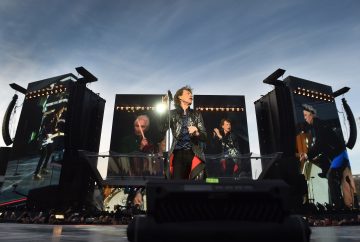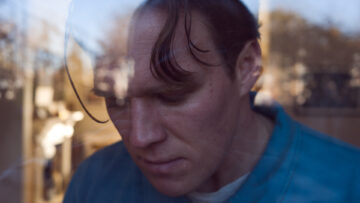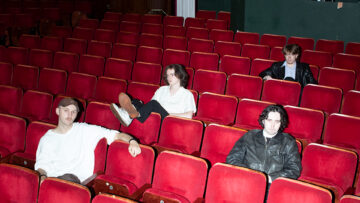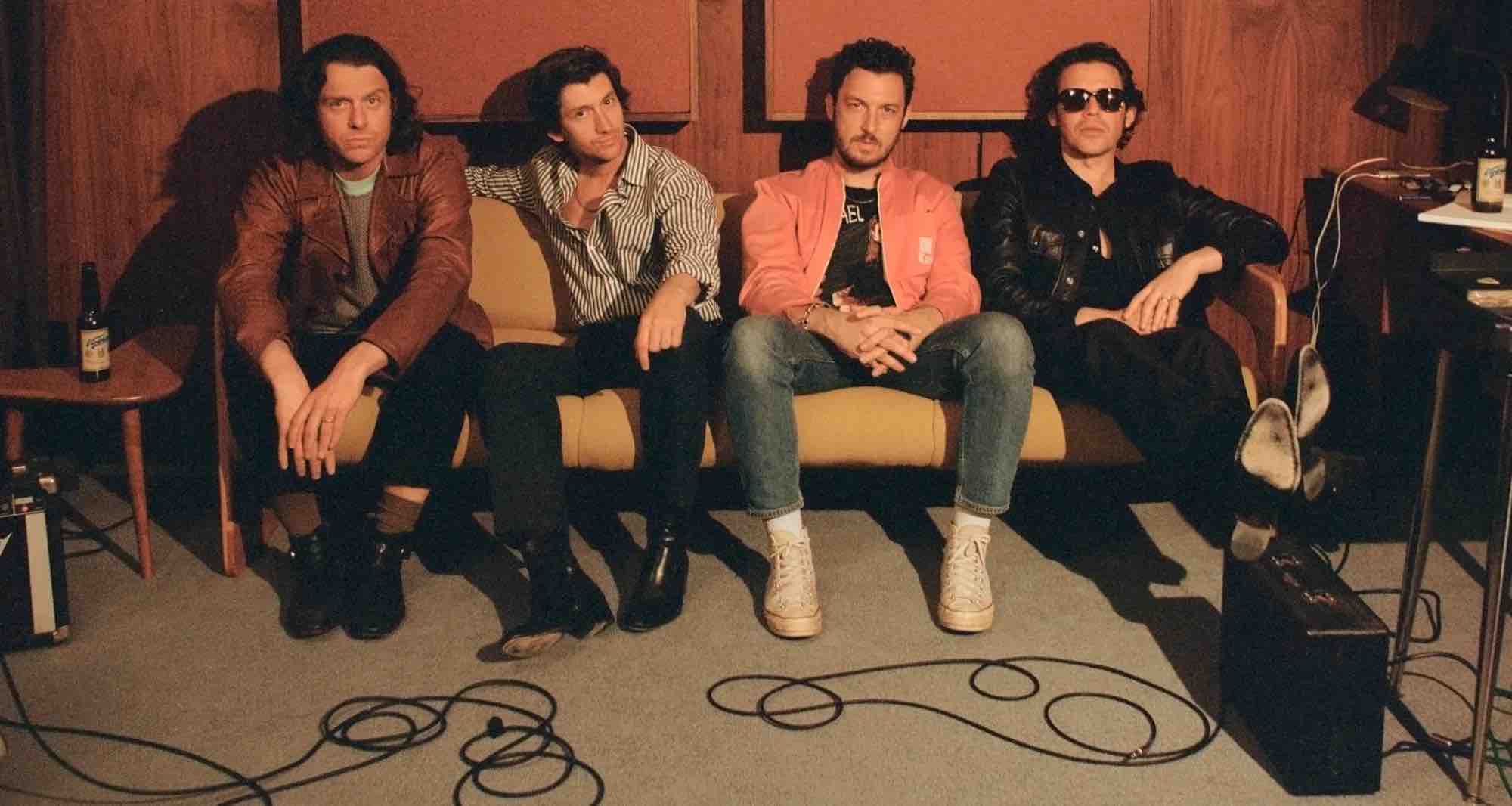
★★★★☆
To give the full quote from which the title of Arctic Monkey’s brilliant, pub-punk debut album derives, from Alan Sillitoe’s post-war classic Saturday Night and Sunday Morning: “I’m me and nobody else; and whatever people think I am or say I am, that’s what I’m not, because they don’t know a bloody thing about me.”
We won’t all be familiar with that last clause, but it’s certainly applicable from the perspective of Arctic Monkeys frontman Alex Turner. Since the release of the band’s last album – the equally excellent yet somehow divisive Tranquillity Base Hotel & Casino, which was at one stage mooted as being a solo Turner record – the degree of speculation over which direction the Sheffield outfit will next take reached almost mythological levels. Fans were trying to suss Turner out, with everyone thinking they had an inkling.
In that 2018 album, Turner had concocted his own galactic, Elvis-style residency, where he crooned like never before about dystopic scenes like “A montage of the latest ancient ruins” (‘American Sports’) and “Reflections in the silver screen of strange societies” (‘Science Fiction’).
It was a far cry from the party-fuelled antics of early Arctic Monkeys and an unexpectedly sedate turn from their colossal 2013 album AM. And as with all such change, this irked people; as though in an ever-changing Britain (which would lose a PM in the very week of The Car’s release), one of the few remaining stalwarts of this country’s culture couldn’t possibly change too.
But the greats need to evolve. And Arctic Monkeys are certainly such a band.
In The Car, we’re back down on earth, but there are still elements that resonate with the sounds of the previous album, as in the warbling intensity and space-like atmospherics of ‘Sculptures Of Anything Goes’ – true to drummer Matt Helders’ word that the album “picks up where ‘Tranquility Base Hotel & Casino’ left off”.
What’s more, the themes are as ethereal as the most soulful of life’s experiences: heartache, longing and saudade. The setting that evokes this is the sense of a peripheral party taking place; not the kind of raucous escapade of Arctic Monkeys gone by, but an older, dare I say, more sophisticated affair.
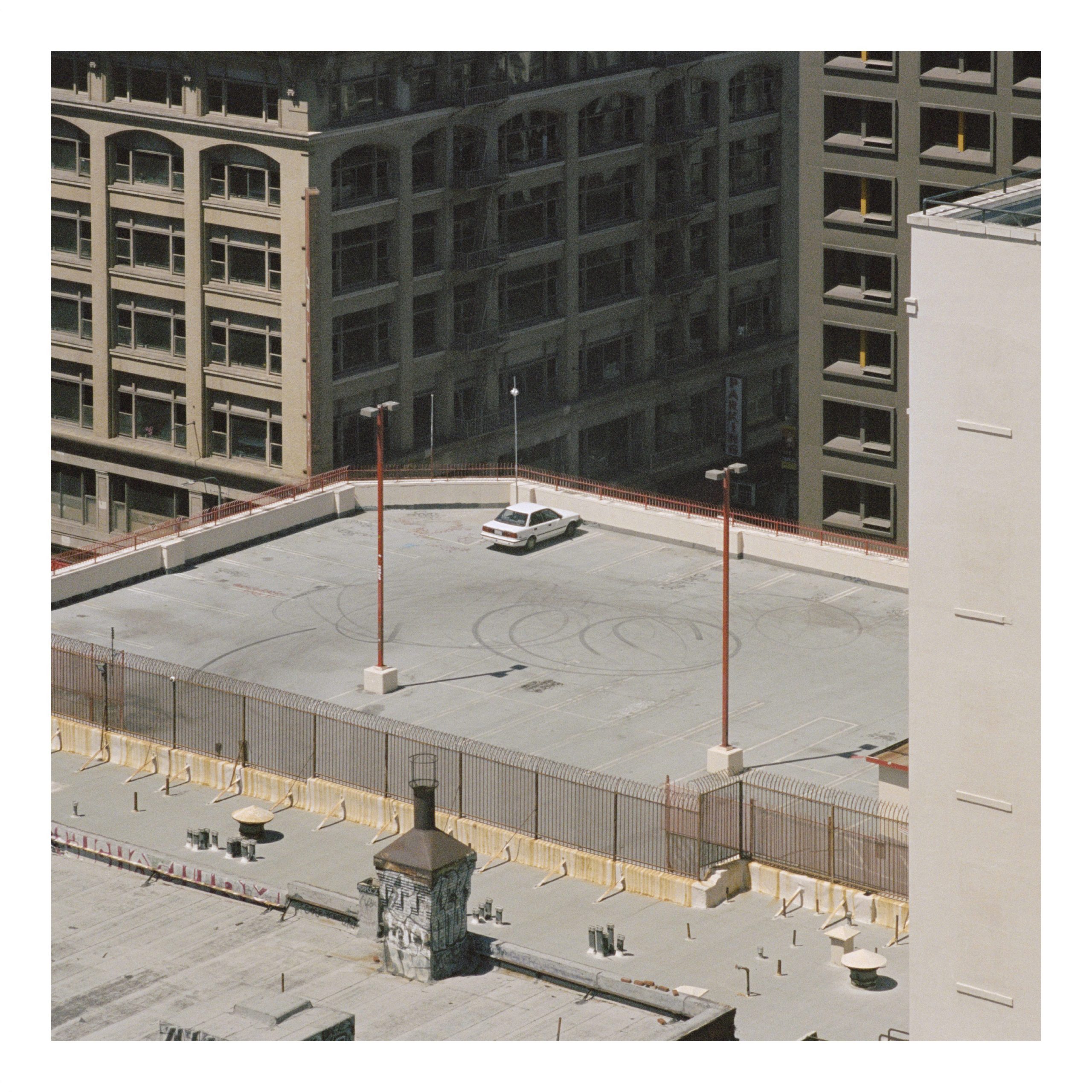
Instead of going out ‘on the pull’, urging crowds to “Get on your dancing shoes”, we’re presented a fictional ‘Mr Schwartz’ “smudging dubbin” on his own waltz-ready footwear. Rather than laughing at “that sketch earlier / Up near that taxi rank”, the band are making their own way, in the driving seat of the album’s namesake.
That titular track (and by consequence the album title) was inspired by a photo Helders took of a solitary white Toyota Corolla on a Leica M6 film camera from his apartment window in Los Angeles. Helders in turn had taken inspiration from the radiant work of U.S. photographer William Eggleston – and it shows.
Like the image, the tune has a real majesty, with meandering acoustic guitar, sentimental piano and the occasional rolling drums. It feels like it captures some of that sepia L.A. light where Turner also wrote the album’s lyrics, which in this instance paint the picture of “A travel size champagne cork pops / And we’re sweeping for bugs / In some dusty apartment.”
Like the poetry of Frank O’Hara or prose of Jack Keroauc, whose classic On the Road also prominently features a car, Turner’s lyrics in this album are often fragmentary, rather than the writing of old, which was as forthright as: “You used to get it in your fishnets / Now you only get it in your night dress”.
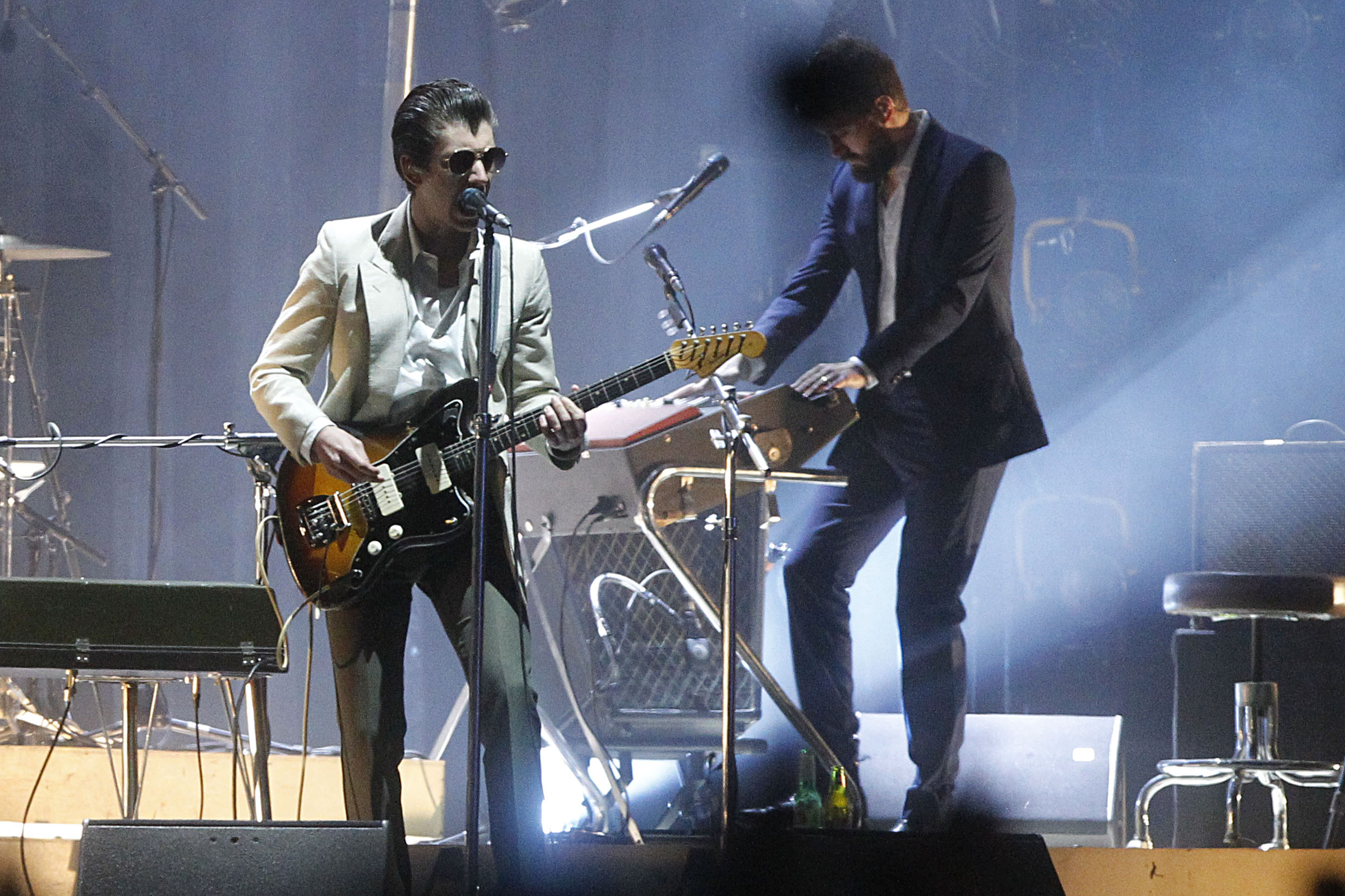
That’s certainly something some are likely to criticise. But art needn’t always deal in clearcut imagery, and this is another example of the band’s development.
‘Big Ideas’ likewise opens with grandeur, with enough string-work to make it worthy of a James Bond theme tune, and offers reflections on the band’s song-writing process: “I had big ideas / The band was so excited / The kind you’d rather not share over the phone.”
Some may criticise the fact that Turner, as expressed in this line, is almost exclusively the band’s songwriter, and should really go solo. Yet as if to prove what a disrespectful position that is to take, in comes Jamie Cook’s swooping, seductive guitar solo to round-off the track.
There’s a moment of clarity, too, in the plodding album closer, ‘Perfect Sense’; about what it means to be in a band, acquire fame and acclaim, as Turner remarks: “Sometimes I wrap my head around it all / And it makes perfect sense / Keep reminding me / That it ain’t a race.”
Indeed, here’s an outfit, seven albums deep, driving at their own pace, without the need to court attention or favour. Brief dalliances with funk grooves in ‘I Ain’t Quite Where I Think I Am’ and ‘Jet Skis On The Moat’ are testament to that; what suggests being more at ease than dabbling with funk?
That latter song also demonstrates just how Turner is slowly perfecting the art of achieving a lot with very little, his falsetto vocals (recorded at La Frette Studios in Paris) almost bordering on ASMR. It could almost be a fault, and no doubt there’ll be some mocking impressions of Turner as a result of The Car – but one of the great skills of this record is how the frontman croons and wails without it becoming cringe.
My one critique, if you can call it that, is that it’s a shame the best was already released prior to the full album. ‘Body Paint’ embodies the full motoring imagery of the album and condenses the very best of the band’s four-way prowess.
Album opener ‘There’d Better Be A Mirrorball’, meanwhile, for which the opening instrumental set the direction for the record once Turner decided on it, is one of the tracks of the year and an emotive tour de force. It’s nigh impossible to adhere to its opening charge: “Don’t get emotional, that ain’t like you”.
Its accompanying video was also directed by Turner, who grew a habit for wielding a camera as well (this time a 60mm film camera) – something the album’s producer and long-time Arctic Monkeys collaborator James Ford was happy with, as it kept Turner away from being overly controlling of the production.
Indeed, the video is an intimate montage of close-ups and footage of the band; lifting the bonnet, if you will, on where they currently stand. A storied quartet with one of the most significant frontmen of his generation at the helm, able to express their maturation rather than cling on to some past that no longer exists.
Arctic Monkeys may not quite have envisioned how Sillitoe’s writing would still be applicable to them to this day, but to quote Saturday Night and Sunday Morning once more: “If you went through life refusing all the bait dangled in front of you, that would be no life at all. No changes would be made and you would have nothing to fight against. Life would be dull as ditchwater.”
Turner and co have indeed been enticed to try something new, to evolve – and are all the better for it. Life would be boring if they refused.


